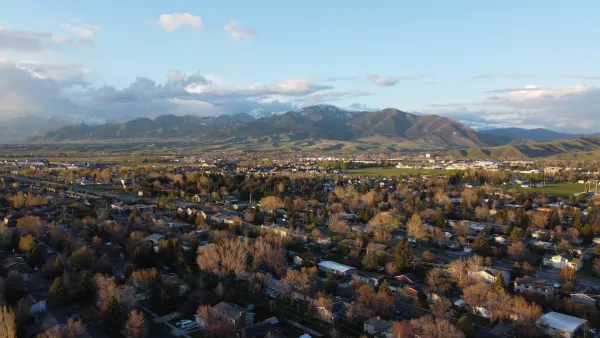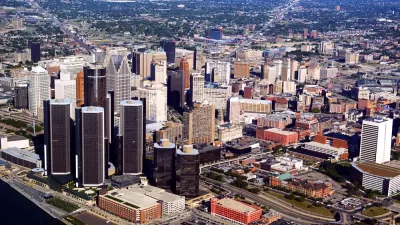Research shows that consistent access to shared cars drastically reduces car ownership rates, but U.S. regulations often impede success for private fleets.

Nicole A. Murray argues that, while politicians and media tout programs like congestion pricing and parking minimums to reduce the number of cars in cities, "there is one unsung tactic that reduces the number of cars on the road and their consequences without big public investment, redevelopment, or a toll on central-business-district-bound drivers: expanding car access through car share."
Murray clarifies that, unlike ride-hailing services, "[c]ar share is the actual sharing of a vehicle among several people. Arrangements can entail formal corporate rentals from car lots (Hertz, Zipcar), point-to-point sharing in which cars can be picked up and dropped off anywhere in a defined zone (Car2Go), peer-to-peer sharing in which members can rent out their cars (Turo, Getaround), and informal arrangements such as sharing among housemates and carpooling."
"To reduce (or even ban) private cars in the city, we should socialize them." Such arrangements would give more people access to cars when they need them while discouraging private car ownership. While New York's Department of Transportation "quietly expanded and made permanent its program to provide street and municipal-lot parking spaces for car-share services in April," it "could go further and municipalize its own fleet into a car-share one, perhaps starting by repurposing the NYPD’s huge cache of 9,000 SUVs, sedans, and smart cars."
These arrangements work because ownership of a car is not the same as unrestricted access to one, and in fact can be a barrier to access: crushing maintenance costs; predatory subprime loans and skyrocketing insurance rates; damage or theft because of lack of safe storage or driving conditions; and of course, fuel costs, not just on personal wallets but on the planet for the massive oil infrastructure needed to support this country’s about 90 percent personal car-ownership rate. Individualizing ownership means individualizing these costs and risks, especially on those most vulnerable economically.
Boosting car share by providing infrastructure, funding, and reducing regulatory barriers, Murray says, would "expand further the benefits and reach of car share in the city and beyond."
FULL STORY: OPINION: To Ban Cars, Socialize Them

Planetizen Federal Action Tracker
A weekly monitor of how Trump’s orders and actions are impacting planners and planning in America.

Restaurant Patios Were a Pandemic Win — Why Were They so Hard to Keep?
Social distancing requirements and changes in travel patterns prompted cities to pilot new uses for street and sidewalk space. Then it got complicated.

Maui's Vacation Rental Debate Turns Ugly
Verbal attacks, misinformation campaigns and fistfights plague a high-stakes debate to convert thousands of vacation rentals into long-term housing.

In California Battle of Housing vs. Environment, Housing Just Won
A new state law significantly limits the power of CEQA, an environmental review law that served as a powerful tool for blocking new development.

Boulder Eliminates Parking Minimums Citywide
Officials estimate the cost of building a single underground parking space at up to $100,000.

Orange County, Florida Adopts Largest US “Sprawl Repair” Code
The ‘Orange Code’ seeks to rectify decades of sprawl-inducing, car-oriented development.
Urban Design for Planners 1: Software Tools
This six-course series explores essential urban design concepts using open source software and equips planners with the tools they need to participate fully in the urban design process.
Planning for Universal Design
Learn the tools for implementing Universal Design in planning regulations.
Heyer Gruel & Associates PA
JM Goldson LLC
Custer County Colorado
City of Camden Redevelopment Agency
City of Astoria
Transportation Research & Education Center (TREC) at Portland State University
Jefferson Parish Government
Camden Redevelopment Agency
City of Claremont




























